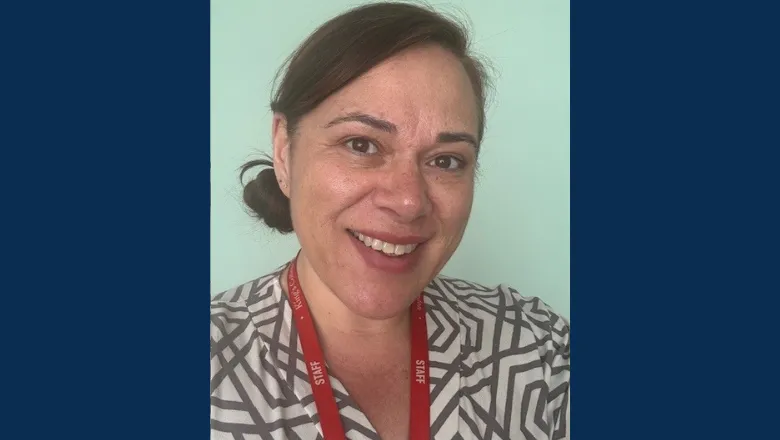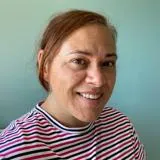I feel incredibly fortunate to have been awarded the NIHR Doctoral Fellowship and am thankful for the support I have received to get to this point. The fellowship is not just a personal achievement but I hope to contribute to a future in maternity care, where all women and birthing people receive the respect and support they deserve.
Claire Singh, Lecturer in Midwifery Education
06 May 2025
Claire Singh awarded NIHR Doctoral Fellowship
Claire will start her position on 1 September 2025.

Claire Singh, a lecturer in midwifery education in the Faculty of Nursing, Midwifery and Palliative Care, has been awarded an NIHR Doctoral Fellowship.
This fellowship has been awarded for her project 'INCLUSIVE: Improving knowledge, skills, attitudes and behaviours for LGBTQ+ maternity care'.
Providing high quality care to marginalised groups including Lesbian, Gay, Bisexual, Transgender and Queer+ (LGBTQ+) birthing people is fundamental to midwifery practice, but evidence suggests that this care is not always delivered. LGBTQ+ people are an increasing population in maternity services and often face discrimination and negative attitudes from care providers.
When accessing healthcare, the LGBTQ+ community are often faced with negative encounters and discrimination from healthcare professionals. These experiences are mirrored in maternity care, with LGBTQ+ birthing people being exposed to homophobia, transphobia, biphobia, and negative attitudes, leading to fear and anxiety about encounters with midwives providing their care. Many additional stressors for LGBTQ+ birthing people arise from the cisheteronormative assumptions (meaning set ideas, norms and beliefs that everyone is heterosexual or one’s gender corresponds to the one assigned at birth) about pregnancy, and ignorance of diverse family units from their healthcare providers.
To note, although LGBTQ+ is commonly used as an umbrella term, it is important to recognise that each group within the overall descriptor may have specific needs from the maternity care service that need addressing.
Microaggressions towards LGBTQ+ people often arise through hetero and cis sexist healthcare interactions, meaning people who express themselves in a way that does not match gender norms (gender variant), are discriminated against through assumptions and processes and can lead to associated birth trauma. Examples of this include assumed identities, maternity records that do not record gender or sexual orientation, exclusion of partners incorrect pronoun use, as well as deadnaming, (using a pre-transition name).
Currently there is no specific LGBTQ+ awareness and diversity training for midwives to help improve these interactions. For midwives to be more competent and confident in caring for LGBTQ+birthing people, dedicated training is required.
This research aims to improve the experience and outcomes of LGBTQ+ birthing people by co-designing and testing an online training to enhance midwives’knowledge, attitude, skills and behaviours in caring for this group.

